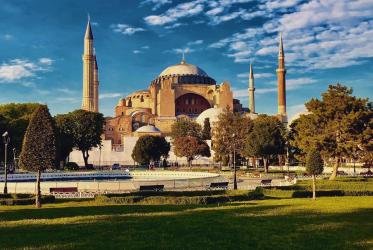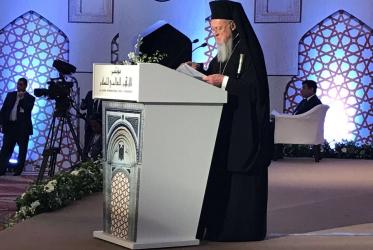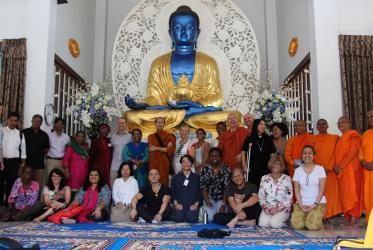Displaying 1 - 14 of 14
Peace is common denominator of all major religions
05 March 2019
Facilitating peace with passion
26 July 2016
WCC/UN conference calls for coordinated action on refugee crisis
20 January 2016
To save the earth, all must change their ways, says Ecumenical Patriarch
19 September 2014








